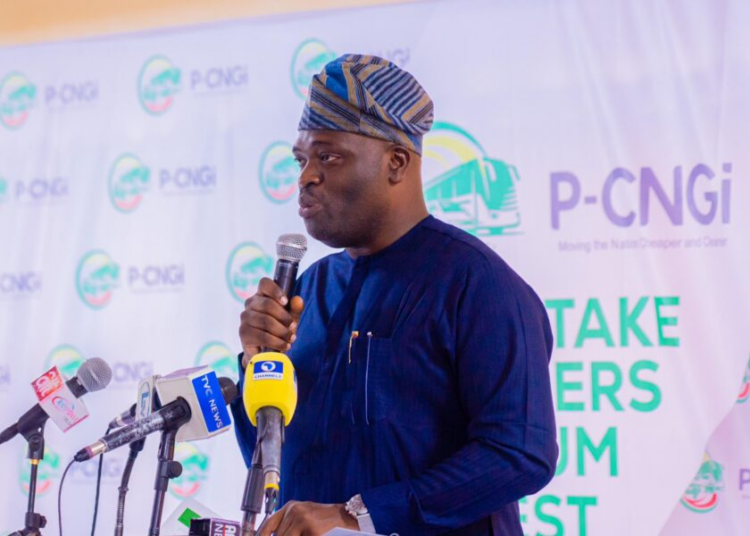CNG investments hit $980m, says Presidency
Nigeria’s Compressed Natural Gas (CNG) sector has recorded over $980 million in private investments within the past 18 months, with vehicle conversions soaring from about 4,000 to nearly 100,000, according to the Chief Executive Officer of the Presidential Compressed Natural Gas Initiative (PCNGI), Michael Oluwagbemi.
Speaking on Wednesday at the inauguration of the Portland Gas Ltd/NASENI CNG Daughter Station, Auto Conversion, and Training Centre along Kubwa Expressway in Abuja, Oluwagbemi described the CNG programme as the nation’s “fastest-growing energy sector,” driven by government incentives and robust private sector participation.
“In just 18 months, we have tracked over $980 million worth of investments in the CNG sector. This is easily the fastest-growing sector in the country today, and it continues to grow in leaps and bounds,” he stated.
The initiative, launched under President Bola Tinubu to cushion the effects of fuel subsidy removal, aims to make transportation more affordable and environmentally friendly. Oluwagbemi noted that CNG-powered vehicles offer motorists up to 90% savings on fuel costs.
From just five states with CNG dispensing and conversion facilities a year ago, the coverage has expanded to 20 states, with over 315 conversion centres nationwide. The PCNGI projects that by the end of 2025, at least 30 states and the Federal Capital Territory will have CNG infrastructure.
Private sector commitments include a ₦720 billion investment by BUA Group and Nigerian Bottling Company in CNG trucks and 100 fuelling stations. Oluwagbemi, however, cautioned against diverting CNG meant for automobiles to gas-fired power plants.
Portland Gas CEO, Folajimi Mohammed, described the newly launched station as a “gas hub” combining an auto-conversion centre, training facility, refill station, and cooking gas sales point. He revealed that the PCNGI has subsidised vehicle conversion costs to make them free for members of the Nigerian Association of Road Transport Owners (NARTO), National Union of Road Transport Workers (NURTW), and Bolt drivers.
The Nigerian National Petroleum Company Limited is also fast-tracking work on the Ajaokuta-Kaduna-Kano gas pipeline to extend CNG accessibility to northern Nigeria.
Similarly, NASENI Director-General, Khalil Halilu, said the Kubwa Expressway location was chosen for its strategic position linking northern and southern Nigeria. He assured that, in partnership with PCNGI, measures are being taken to eliminate queues at CNG stations within two years.
Meanwhile, the House of Representatives has pledged to introduce legislation preventing the diversion of auto CNG to other uses. Speaking on behalf of the Speaker, Tajudeen Abbas, Alexander Mascut stated: “This transition is challenging, but the National Assembly will work to enact laws that safeguard CNG for automotive use.”














Post Comment